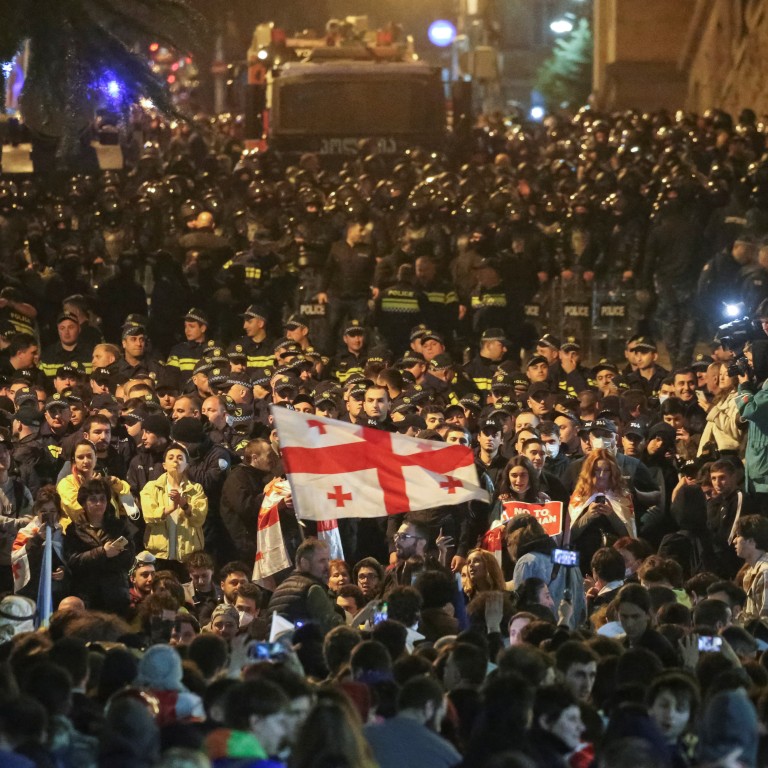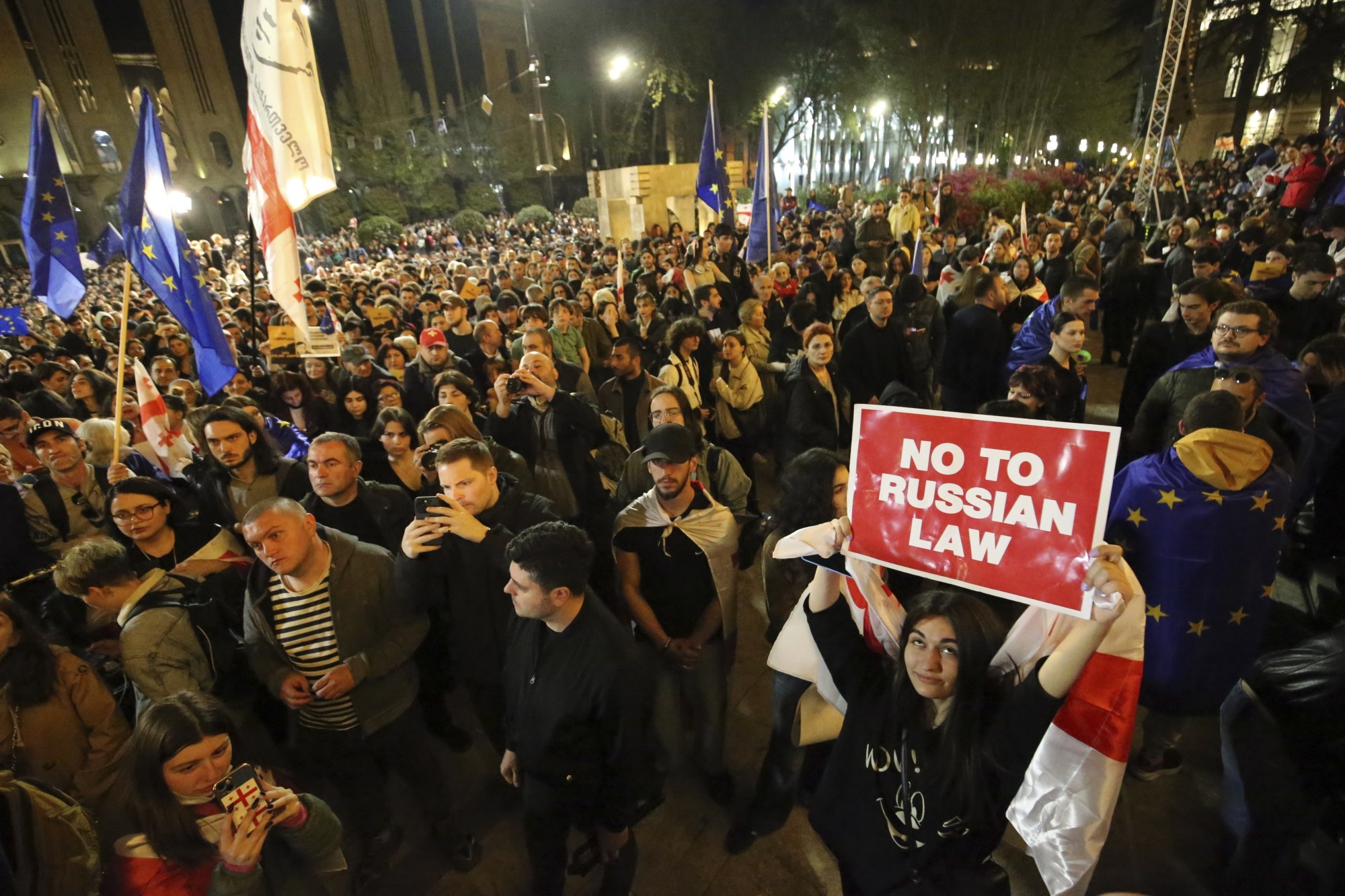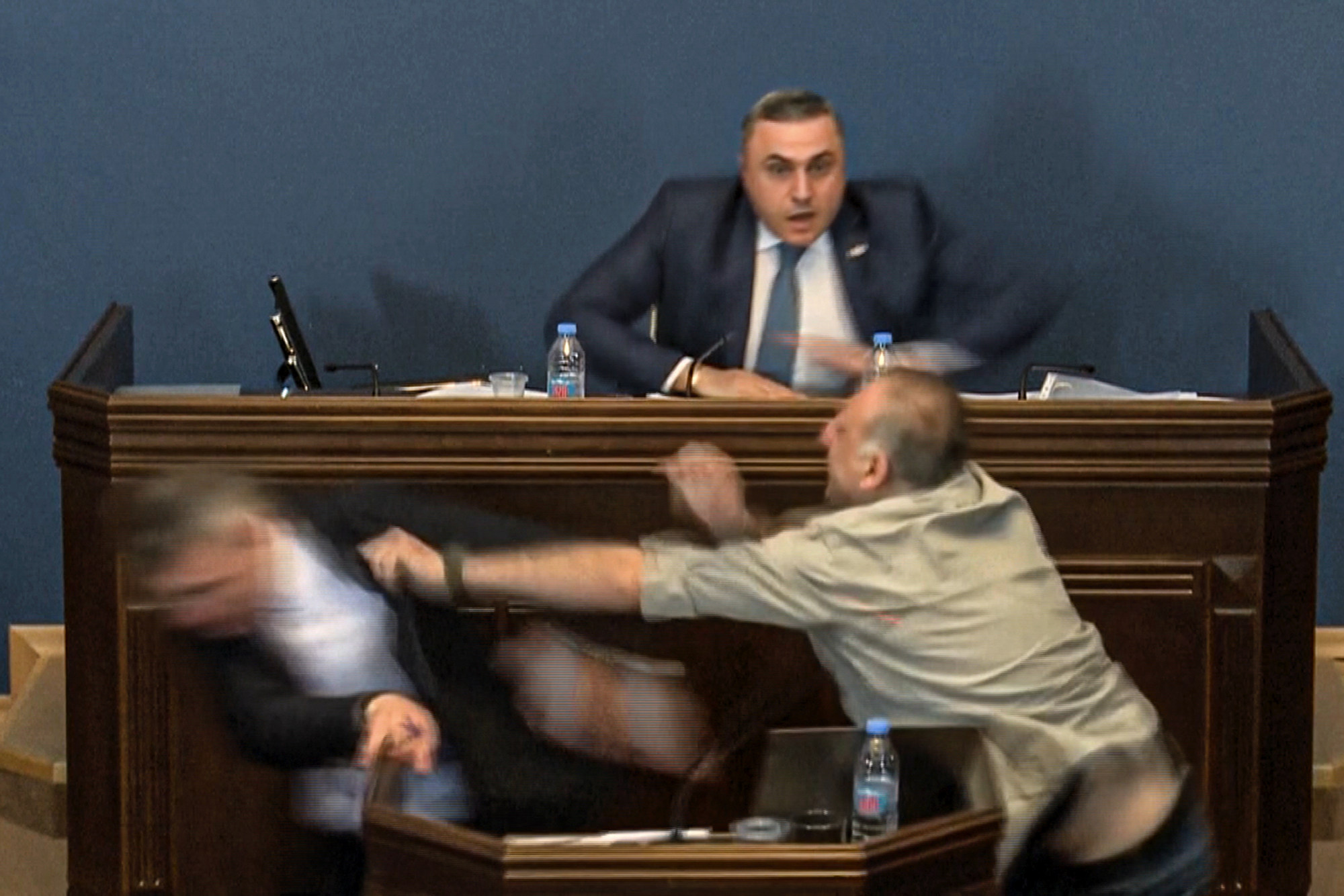
Thousands protest, lawmakers brawl as Georgia debates Russian-inspired ‘foreign agents’ bill
- Critics say Georgia’s draft ‘foreign agent’ bill mirrors Russian legislation used to silence dissent
- Government says bill is necessary to combat ‘pseudo-liberal values’ imposed by foreigners
Thousands of Georgians protested and lawmakers came to blows as ruling party legislators gave the initial go-ahead for debate on a bill on “foreign agents” that has been criticised by Western and domestic critics as Russian-inspired.
More than 5,000 demonstrators massed outside Georgia’s Soviet-built parliament building on Monday, demanding the government withdraw the legislation requiring organisations that accept funds from abroad to register as foreign agents or face fines.
Georgian critics label the bill “the Russian law”, comparing it to legislation used by the Kremlin to crack down on dissent.
Parliament’s legal affairs committee, which is controlled by the ruling Georgian Dream party and its allies, endorsed the bill, clearing the way for it to be submitted for a first reading on Tuesday.

Protesters chanted “Russians! Russians!” at cordons of police securing approaches to the parliament, with water cannon deployed nearby.
Georgia’s Interior Ministry said in a statement that 14 protesters had been detained for public order violations and one police officer had been treated for injuries.
Georgia withdraws ‘foreign agents’ bill after days of protests
“I hope we push hard enough to get this law out of the parliament,” said Tornike, a 24-year-old activist. “But if they don’t do it, I think we have to push hard enough to get rid of this government.”
Many protesters dispersed in the evening after activists urged them to return for Tuesday’s parliamentary sitting.
President Salome Zourabichvili, a frequent critic of Georgian Dream, pledged support for the protesters on the X media platform, vowing “Georgia will not surrender to resovietisation!” The president’s role is mainly ceremonial.
The Georgian Dream party, largely under the control of billionaire Bidzina Ivanishvili, a former prime minister, said this month it would reintroduce the bill, 13 months after it was shelved due to protests.
Earlier, television showed Mamuka Mdinaradze, leader of Georgian Dream’s parliamentary faction and a key force behind the bill, being punched in the face by opposition MP Aleko Elisashvili while speaking from the despatch box.
The incident prompted a brawl pitting lawmakers against each other, an occasional occurrence in the often-raucous parliament.

Footage showed Elisashvili being greeted with cheers outside the parliament. Several other opposition MPs were removed from the committee hearing by Georgian Dream legislators.
The bill has strained relations with European countries and the United States, which oppose its passage. The European Union, which gave Georgia candidate status in December, has said the move is incompatible with the bloc’s values.
Georgian Dream says it wants the country to join the EU and Nato, even as it has deepened ties with Russia and faced accusations of authoritarianism at home. It says the bill is necessary to combat what it calls “pseudo-liberal values” imposed by foreigners and promote transparency.
‘Life-threatening’: jailed Georgia ex-president’s dramatic weight loss
The government said Prime Minister Irakli Kobakhidze met the EU, British and US ambassadors and defended the bill.
Russia is widely unpopular in Georgia due to its support for two breakaway regions in the ex-Soviet state: Abkhazia and South Ossetia. Russia defeated Georgia in a short war in 2008.
Khatia Dekanoidze, an opposition MP expelled from the committee hearing on the bill, told Reuters: “It’s not about the law, I mean it’s not about the legal proceedings. It’s about the geopolitical choice. Whether Georgia is going to the European Union, or whether Georgia is going to Russia”.
Georgia is due to hold elections by October. Opinion polls show that Georgian Dream remains the most popular party, but has lost ground since 2020, when it won a narrow majority.

